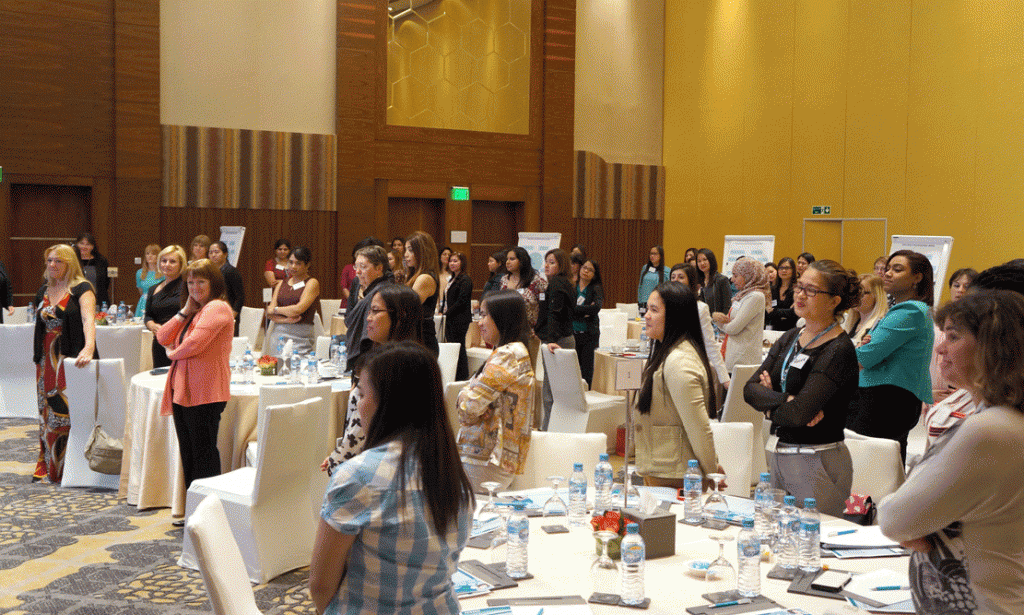The British consultancy Atkins hopes to break the ‘glass ceiling’ in its Middle East workforce through a Women’s Business Network (WBN), which has grown to 460 members.
Launched last August, the network is open to all female employees of Atkins and its project and cost-management arm Faithful+Gould.
It was founded with a view of helping female employees cope with the challenges of working in construction, a traditionally male-dominated industry.
Some of the key issues women have to deal with include tackling perceptions that they aren’t as competent as their male peers, or having to juggle the demands of work and family life, members said.
“What we’re trying to do here is to break the barriers so that women can reach their full potential,” said Jinsy Sunith, HR advisor at Atkins, based in the UAE.
The network aims to “develop a pipeline of female talent so that they reach their full potential,” Sunith added. “It all happens with the mind-set which is fully supported by our senior leaders in both Faithful+Gould and Atkins.”
Helen Robinson, talent manager at Atkins, said the network was founded partly in response to an initiative in the UK called Women in Leadership.
“We started talking and identifying a number of women in the business around the whole region that we could appoint to an initial start-up board and that’s kind of how we started,” she said.
From an initial eight to ten members, the Women’s Business Network (WBN) has grown to a strength of 460, comprising 20% of the company’s workforce in the region, she noted.
It is aimed at improving gender diversity among Atkins and Faithful+Gould’s workforce, with a view to encouraging more women to aspire to senior positions.
The WBN board comprises of women from different business sectors in the firm, said Becky Taylor, Business Change Leader at Atkins.
“Our objective is to maintain that diversity on the board so that all parts of the business are being represented successfully,” Taylor said, adding the board is representative of different ethnic groups as well.
Serving on the board has been a positive experience for her, she said.
“It’s safe, it’s friendly, it’s broadening my network and it’s actually given me some kind of belief that the business actually cares about the development of women into senior positions over a period of time,” she noted.
To help solve negative perceptions about women in construction, the WBN has introduced a number of projects and initiatives, including coaching and mentoring schemes, workshops, and networking events, Sunith said.
However, in addition to retention and advancement of female employees, the network is also working towards attracting girls to engineering, through reaching out to universities to tap into female talent, Robinson said.
“This year, half our graduate intake was female, which is unheard of. That’s quite a major step forward for us and very exciting,” Robinson said.
“But it is difficult for any company in the STEM (science, technology, engineering, mathematics) subjects, girls just aren’t going into those in the first place. That’s a longer-term challenge that all of us have to face.”

